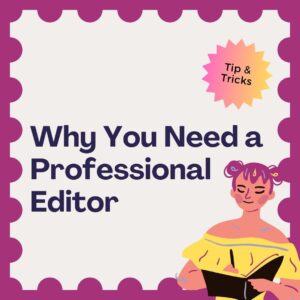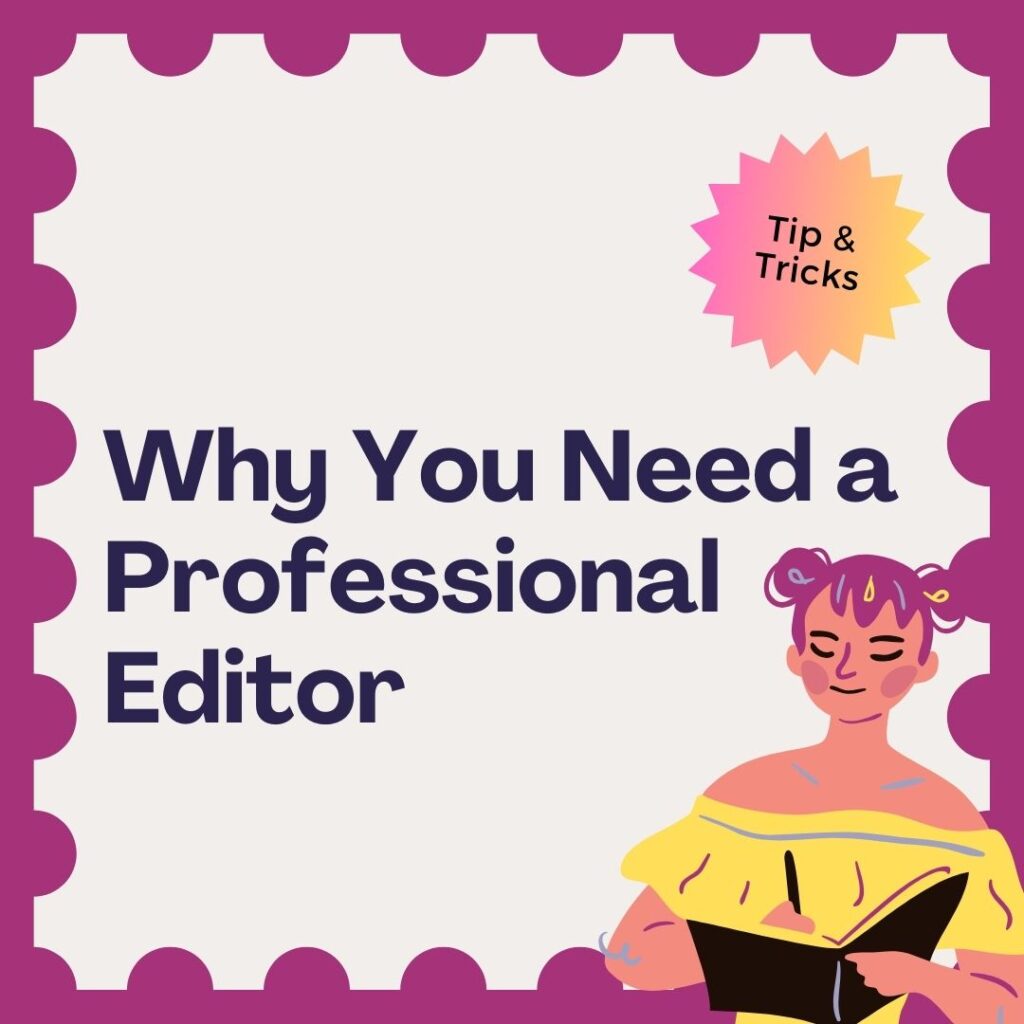Why You Need a Professional Editor: The Ultimate Guide for Writers
In the world of writing, whether you are an aspiring author, a seasoned novelist, or a business professional crafting reports, the importance of having a professional editor cannot be overstated. A professional editor can elevate your work, ensuring that it is polished, coherent, and ready for publication. This comprehensive guide will explore the many reasons why hiring a professional editor is essential, the benefits they bring to your writing process, and tips for finding the right editor for your needs.

Table of Contents
What Does an Editor Do?
A professional editor is responsible for reviewing and revising written content to improve its quality and ensure it meets industry standards:
- They check for grammatical errors, punctuation mistakes, and spelling issues.
- They assess the overall structure and flow of the writing.
- They provide feedback on content clarity and coherence.
Types of Editing Services
There are various types of editing services available depending on your needs:
- Developmental Editing: Focuses on the overall structure and content of the manuscript, including character development, plot structure, and pacing.
- Copyediting: Concentrates on grammar, punctuation, style consistency, and clarity without altering the content significantly.
- Proofreading: The final step before publication that involves checking for typos, formatting issues, and minor errors.
The Importance of Professional Editing
Professional editing is crucial for several reasons:
Enhancing Clarity and Coherence
An editor helps clarify your ideas and ensures that your writing flows logically:
- They can identify areas where your message may be unclear or convoluted.
- By refining your language, they enhance reader comprehension.
Example:
A well-edited manuscript will guide readers smoothly from one point to another without confusion.
Improving Grammar and Punctuation
Even experienced writers can overlook grammatical errors:
- A professional editor has a keen eye for detail and can catch mistakes that spellcheckers often miss.
- Correct grammar and punctuation are essential for maintaining professionalism.
Example:
A misplaced comma can change the meaning of a sentence entirely; an editor helps prevent such errors.
Strengthening Structure and Flow
Editors assess how well your work is organized:
- They provide feedback on paragraph structure, chapter organization, and overall pacing.
- A well-structured manuscript keeps readers engaged from start to finish.
Example:
An editor might suggest rearranging chapters to enhance narrative tension or emotional impact.
Providing Objective Feedback
Getting feedback from friends or family can be biased:
- A professional editor offers an objective perspective on your work.
- They can point out weaknesses or inconsistencies that you may not notice due to familiarity with your text.
Common Mistakes Writers Make Without an Editor
Writers often make critical mistakes when they skip the editing process:
- Overlooking Errors: Familiarity with your work can blind you to mistakes.
- Weak Structure: Without feedback, you may miss opportunities to strengthen your narrative flow.
- Inconsistent Tone: An unedited manuscript may lack a consistent voice or tone throughout.
Benefits of Hiring a Professional Editor
Investing in a professional editor brings numerous benefits:
Saves Time and Effort
Editing can be time-consuming:
- A professional editor can quickly identify issues that may take you hours to spot.
Example:
Instead of spending days revising your manuscript multiple times, you can focus on new writing projects while an editor refines your work.
Increases Chances of Publication
A polished manuscript is more likely to attract agents or publishers:
- Many publishing houses require professionally edited submissions.
Example:
Books that have undergone thorough editing typically receive better reviews and higher sales.
Boosts Reader Engagement
Readers are more likely to enjoy a well-edited book:
- Clear writing enhances their reading experience and encourages positive word-of-mouth recommendations.
Example:
A book with minimal errors feels more professional and trustworthy to readers.
Offers Expertise in Your Genre
Professional editors often specialize in specific genres:
- Their knowledge can help ensure that your work adheres to genre conventions while still standing out.
Example:
An editor familiar with romance novels will understand tropes that resonate with readers in that genre.
How to Choose the Right Editor
Selecting the right editor is crucial for achieving your goals:
Assessing Your Needs
Determine what type of editing you require based on your manuscript’s stage:
- Do you need developmental editing or just proofreading?
Researching Potential Editors
Look for editors with experience in your genre:
- Check their credentials, past work, and client testimonials.
Example:
Visit their websites or LinkedIn profiles to gauge their expertise.
Understanding Pricing Structures
Editing costs vary widely based on experience and services offered:
- Be clear about your budget before reaching out to potential editors.
Example:
Some editors charge by the hour while others may offer flat rates per page or project.
Working with Your Editor
Establishing a good working relationship with your editor is essential:
Setting Expectations
Communicate clearly about what you expect from the editing process:
- Discuss timelines, specific areas you want feedback on, and any concerns you may have.
Example:
If you’re particularly worried about character development in your novel, let your editor know so they can pay extra attention to that aspect.
Providing Context for Your Work
Share background information about your manuscript:
- Explain its themes, target audience, and any specific goals you have in mind.
Example:
Providing context helps editors tailor their feedback effectively.
Being Open to Feedback
Approach feedback with an open mind:
- Understand that constructive criticism is meant to improve your work; be willing to make changes based on their recommendations.
Case Studies: Successful Authors Who Hired Editors
Examining real-world examples can illustrate the value of professional editing:
Case Study: J.K. Rowling
Before Harry Potter became a global phenomenon, Rowling worked closely with her editor at Bloomsbury who helped refine her manuscripts significantly—this collaboration contributed greatly to her success.
Case Study: Stephen King
King often emphasizes the importance of his editors in shaping his novels; he acknowledges that their input has been invaluable throughout his career.
Resources for Finding Professional Editors
Utilizing resources can help you find qualified editors:
- Freelance Platforms: Websites like Reedsy or Upwork connect authors with freelance editors specializing in various genres.
- Professional Organizations: Associations like the Editorial Freelancers Association (EFA) provide directories of qualified editors.
- Writing Communities: Join online forums or local writing groups where members share recommendations for trusted editors.
Conclusion
Hiring a professional editor is one of the best investments you can make as a writer! By understanding their role—recognizing its importance while navigating common pitfalls—you’ll be well-equipped to enhance your manuscript’s quality!
Discover marketing services, interviews & publishing tools at SharingStories.


